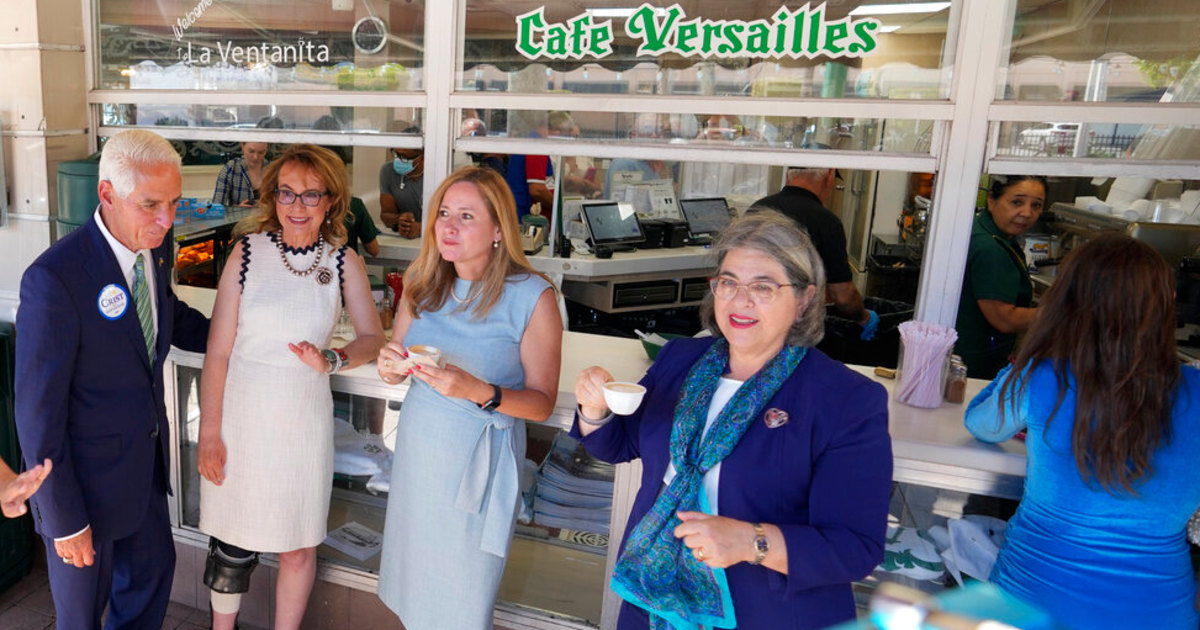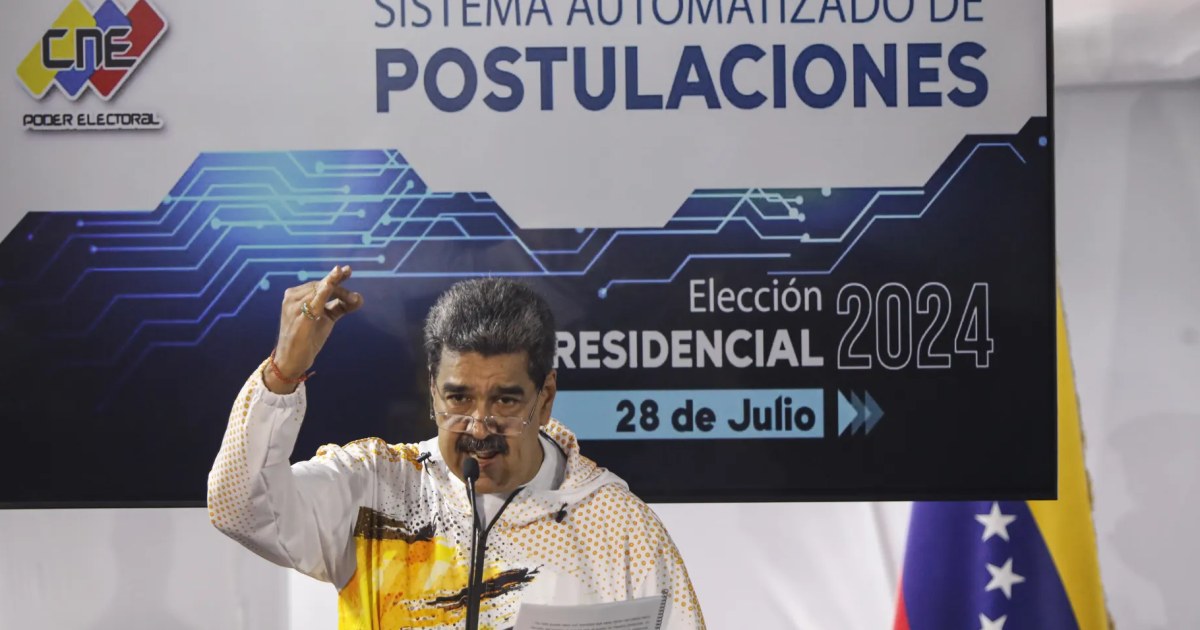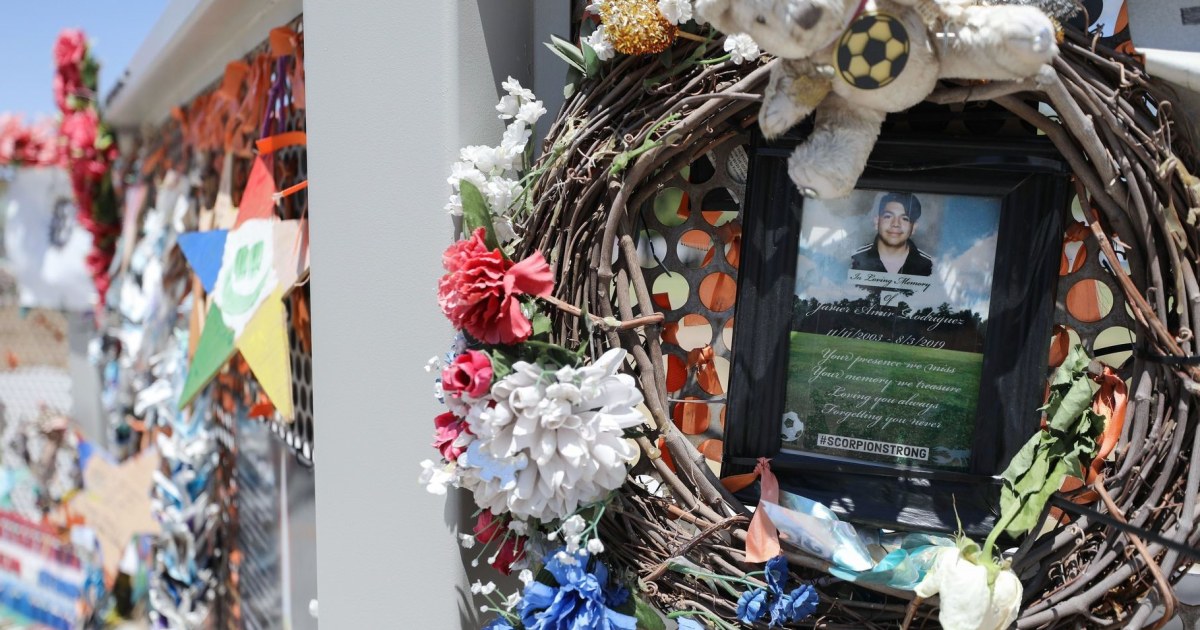📢
Axios Latino is published every Tuesday and Thursday.
If you are interested in subscribing and receiving it in your mail (
in English
), you can do so
by clicking here
.
You will always find it in Spanish on Noticias Telemundo.
1 topic to highlight: Fighting against undercounting
Robert Santos, the first Latino director of the Census Bureau
, assures that he wants to remedy the severe undercount of the Hispanic population, reinforcing door-to-door contact starting today.
Why it matters
: The 2020 Census missed 5% of the Latino population, an undercount three times higher than in 2010. Many Black and Native American people were also missed.
Census counts are used to draw electoral districts and allocate hundreds of billions of dollars in federal funds.
Districts where all Latino households were not counted may lose key funding for health care and education, as well as food stamp benefits and free school lunches.
Between the Lines
: The undercount of Latinos has been attributed to fear over plans to include a question on citizenship —which was ultimately dropped— as well as insufficient outreach to the community to encourage them to fill out the forms (which were also available online). line
Robert Santos, director of the Census BureauTom Williams/CQ-Roll Call, Inc / via Getty Images
In his own words
: Santos, who is the first non-white person to lead the Census Bureau, will spend most of his time “going out into the communities” to promote participation in 2030, he said in an interview with Noticias Telemundo.
The message about the benefits of participating in the count and other surveys of the Census must be clearer and transmitted to the groups that benefit directly, added the director.
Santos said adjusting when and how
enumerators visit households could improve the results of future studies.
"I think the future of the Census in 2030 is to analyze the data that we already have and then go door to door," he said.
Discovering the gaps in the information that already exists will allow her to ask people with a better focus on who needs to be contacted.
In short
: "With a diverse voice in leadership from the nation's largest and largest statistical agency, with different perspectives, we can come up with new ways to collect better data and identify what data isn't being collected well, what to ask that hasn't been asked,” Santos said.
2. The Hispanic Caucus criticizes other Democrats
The electoral arm of the Congressional Hispanic Caucus is taking a different tone than in years past, openly criticizing Democratic caucuses typically led by non-Hispanic whites for disparaging the Latino vote in midterm elections.
The Big Picture
: Rep. Ruben Gallego (D-AZ), CHC BOLD PAC Chairman, has endorsed several Latino House candidates in recent weeks.
Among them is Andrea Salinas, currently a state representative in Oregon and a candidate for the Lower House.
The CHC PAC announced this Monday that it will give him a million dollars to buy advertising space for the primary elections.
In contrast, another Democratic campaign funding arm, the House Majority PAC, is giving money to a white candidate with no political background, Carrick Flynn.
In other years the CHC PAC had been fairly inactive outside of raising money for Democratic candidates.
Democratic representatives from Arizona, Ruben Gallego (right), and from California, Jimmy Gomez.Tom Williams/CQ-Roll Call, Inc / via Getty Images
The Other Look
: House Majority PAC communications director CJ Warnke told Axios Latino that the group believes supporting Flynn in the primary “is a step toward” securing control of the House. in November.
The executive director of the House Majority PAC, Abby Curran Horrell, added that this group has a "long history of supporting Latino candidates and reaching out to Latino communities to get Democrats elected to Congress."
News Momentum
: Gallego has also criticized the House Majority political action and fundraising committee twice in recent weeks.
He said that the plan to spend only a small part of the electoral budget for November on Spanish-language ads was very insufficient: of more than 100 million dollars intended for digital and television ads for November, House Majority plans to allocate 1.2 million to ads in Spanish.
"How the House majority PAC has invested this election cycle raises questions about its commitment to a critical early effort," Gallego told Axios Latino.
3. Interview: Andrea Salinas on the power of the Latino vote
The state representative of Oregon Andrea Salinas, a candidate for the Democratic candidacy for the House of Representatives for that state, said in an interview with Axios Latino that she cannot believe that the Democratic committee that distributes campaign funds for the Lower House prefers to support a candidate unknown and white.
In his own words
: Salinas says his record of supporting progressive issues like plans to lower prescription drug costs shows he's already been able to accomplish things and can put together an effective campaign.
Andrea SalinasCourtesy
"Minority voters and candidates gave the Democrats the majority in the 2020 elections," Salinas said, referring to that party having control of the lower house.
"Despite this, the House Majority PAC deliberately decided not to endorse me — and I am one of the most qualified Latinas running for Congress," she added.
Background
: Salinas is the daughter of a Mexican immigrant who was a farmworker and served in the Vietnam War.
As a state legislator, she has earned a reputation as a coalition builder and advocate for Oregon's growing Latino population (Hispanics make up 21% of the district where Salinas serves).
The Intrigue
: Since entering Oregon's crowded Democratic primary, Salinas has been endorsed as the front-runner by more than 80 Democratic figures.
That includes half of the Latina federal congresswomen and leaders of several major labor unions.
Don't forget
: Latinas are only 13 of the 435 members of the House of Representatives.
4. Fight Alzheimer's with an email
A new study shows that it is possible to enroll more Latinos
in Alzheimer's clinical research studies, so that they are faithfully representative of the general population, simply by sending them an email.
Illustration: Sarah Grillo/Axios
Why It Matters
: Latinos in the United States are chronically underrepresented in clinical trials for treatments for cognitive disorders, even though they are 1.5 times more likely to be diagnosed with Alzheimer's or dementia than non-Hispanic whites.
Remote data collection is being pushed as a way to get more participants for genetic research on cognitive topics, especially as the pandemic has made in-person sampling difficult.
More details
: The study designed an email recruitment campaign targeting Latinos age 55 and older who had already undergone cognitive assessments.
A marketing company assisted to make the emails more interesting and to offer messages in both English and Spanish.
The intention was to recruit people who wanted to share genetic information for a pilot brain health registry led by researchers at the University of California, San Francisco.
DNA collection kits with bilingual instructions were sent to those who responded with interest.
The number of Hispanic participants in the GenePool study increased from 1.7% to 19%, according to preliminary results of the study.
These were presented at the Alzheimer's Association's third annual Latino conference held this week.
In his own words
:
Due to the distances, due to problems of trust in the health service, because not everyone has caregivers or family members who can take the day off to take them to a clinic, and due to the continuing problem that few Latinos have access to specialists who can referring them to clinical trials, the use of technology and options of that type are an advantage”.
Maria C.
carillo, scientific director of the alzheimer's association
But, but, but
: Carrillo emphasized that remote data collection brings challenges, such as possibly excluding people with less access to the internet or generating trust issues over granting genetic material if privacy guarantees are not provided with an easy-to-understand notice. .
The Fact
: Warning signs of Alzheimer's disease or related cognitive decline include sudden difficulty concentrating or completing familiar everyday tasks, sudden struggle with words, and abrupt mood swings.
5. What's next for Melissa Lucio
Lawyers for Melissa Lucio, whose execution was postponed on Monday, now hope to convince a court that the woman should have a new trial based on evidence that was not presented before and that they claim proves her innocence.
News Momentum
: The Texas Court of Criminal Appeals granted a request to stay Lucio's execution, which was scheduled for Wednesday.
The idea is for a lower court to consider the merits of claims of innocence;
although it is not yet clear when the court will review the evidence.
"My God!": This was the moment when Melissa Lucio found out that her execution was suspended
April 25, 202203:55
The lawyers of the Latina, who was convicted in 2008 accused of the death of her 2-year-old daughter, point out that there is new evidence that proves that the minor, Mariah, died when she fell down the stairs.
Prosecutors maintained that Mariah was a victim of child abuse.
In her own words
: "Mariah is in my heart today and always. I am grateful to have more days to be the mother of my children and the grandmother of my grandchildren," Lucio said in a statement after learning that her execution will no longer take place on 27 of April.
Lucius has 14 children.
6. Summary of key news in Latin America and the Caribbean
The National Human Rights Commission of Mexico
on Monday urged the Government of Andrés Manuel López Obrador to prioritize the issues of missing women and femicides after massive protests on Sunday.
In these demonstrations, it was demanded that there be more action on the part of the authorities after what the commission called an "unfortunately not exceptional case given the repeated nature of this type of violence."
He was referring to the death of Debanhi Escobar, 18, who disappeared two weeks ago and was found in Monterrey, Nuevo León.
Escobar's parents accuse authorities of not working fast enough on the missing women's cases.
Between 10 and 11 women are killed in Mexico every day because of their gender, according to UN data.
Approximately 400 women have disappeared this year in Nuevo León, on the border with Texas, according to state records.
Debanhi Escobar: the murdered young woman is buried and new details about her death emerge
April 25, 202202:55
The Organization of American States
stressed
that Nicaragua
remains a full member of the organization and will be subject to its democratic obligations until the end of 2023, after the Central American nation tried to expressly leave the hemispheric organization.
Daniel Ortega's regime announced on Sunday that his planned withdrawal from the OAS would take effect immediately, despite the fact that OAS regulations specify that leaving the group is a two-year process.
Nicaragua also revoked the credentials of OAS representatives, including Ambassador Arturo McFields, who broke with Ortega in March and denounced him as a "dictator."
Ortega initially mentioned his exit plans in November, after the OAS criticized elections in which most candidates were jailed and Ortega was declared the winner of a fourth consecutive term.
7. 🦿This junk walks
A mechanical engineer is giving amputees in Colombia a boost by reusing scrap metal to make affordable prosthetics.
A man creates prosthetic legs with scrap metal and restores hope to hundreds of people
April 11, 202203:13
Details
: Juan Salcedo has been building prostheses for 15 years with the motto “we make scrap metal walk”.
He says that using discarded parts allows him to give out the prosthetics for free.
Parts come from junkyards or donations.
Those that cannot be used for a prosthesis are sold to help buy more materials.
More than 350 people have benefited through Salcedo's group, Fundación Fuente de Esperanza.
Salcedo decontaminates, sands and shapes old car parts, pipes and other materials himself: each prosthetic leg requires about 16 tons of scrap metal and eight days of work.
The prostheses are modular, so worn parts can be changed without having to replace the whole.
Thank you for reading!
We'll be back on Thursday with our pachanga festivities, where we celebrate achievements that readers submit.
If you want to be included, send us an email.
Do you want to see some of the most recent previous editions?
How walking also improves mental health
Los García, a program focused on a Latino family that had been canceled, returns to TV
Fintech apps to solve banking problems faced by Hispanics
Behind the struggle of Latino street vendors in New York
The benefits of being bilingual, as teaching in two languages increases in the US.









